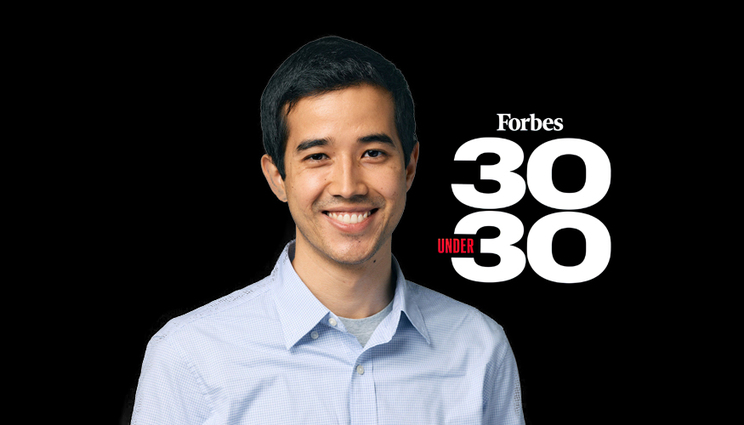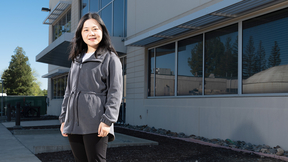LLNL scientist named to Forbes ’30 under 30’ list
 (Download Image)
(Download Image)
Daniel Schwalbe-Koda has been named one of Forbes “30 under 30” for 2023 in the science category.
Lawrence Livermore National Laboratory materials scientist Daniel Schwalbe-Koda has been named one of Forbes “30 under 30” for 2023 in the science category.
Forbes features a list of 600 individuals under the age of 30 each year, who have impactful careers and/or accomplishments across a span of industries — healthcare, science, consumer technology, Hollywood, retail, social media, sports, finance and more — each separated into categorized lists.
“I am humbled to receive this recognition, and I thank the Forbes 30 Under 30 committee for the consideration,” Schwalbe-Koda said. “This achievement would certainly not be possible without the hard work of all the collaborators that supported my research. The award provides further motivation to keep contributing to the field, which I am particularly excited to do in partnership with my colleagues at LLNL.”
Schwalbe-Koda, who started at the Lab in 2022 as a Lawrence Fellow, is developing new, low-cost, sustainable materials by tasking large supercomputers with finding materials that have the highest probability of being synthesized in practice. In one example, he co-discovered a nanoporous material to remove pollutants from diesel engine exhaust. The new material outperformed the current options at a lower-than-expected cost.
He works in the Quantum Simulations Group, Materials Science Division at the Lab, but also gets to work on interdisciplinary fields such as applied scientific computing and machine learning. His interests include developing computational models that can study increasingly complex phenomena in materials science. For example, understanding materials synthesis and chemical reactions is time-consuming, even for simulations. While machine learning helps accelerating these data-intensive tasks, it still lacks the robustness needed to simulate large times and length scales.
“My research goals include developing faster and accurate models for materials screening, automated workflows that can make the most of HPC resources and theoretical insights in materials synthesis.” Schwalbe-Koda said.
He received his bachelor's and master’s degrees in physics and electrical engineering from the Aeronautics Institute of Technology, Brazil and his Ph.D. in materials science and engineering at the Massachusetts Institute of Technology.
Launched in 2011, reporters, editors and expert judges consider a variety of factors for the “30 under 30” annual list, including funding, revenue, social impact, inventiveness and potential. Nominee shortlists are shared with each category's four-judge panel who select the final 30 listees in their assigned category.
Contact
 Anne M. Stark
Anne M. Stark
[email protected]
(925) 422-9799
Related Links
Forbes “30 under 30”Tags
Advanced Materials and ManufacturingMaterials Science
People
Physical and Life Sciences
Careers
Featured Articles







